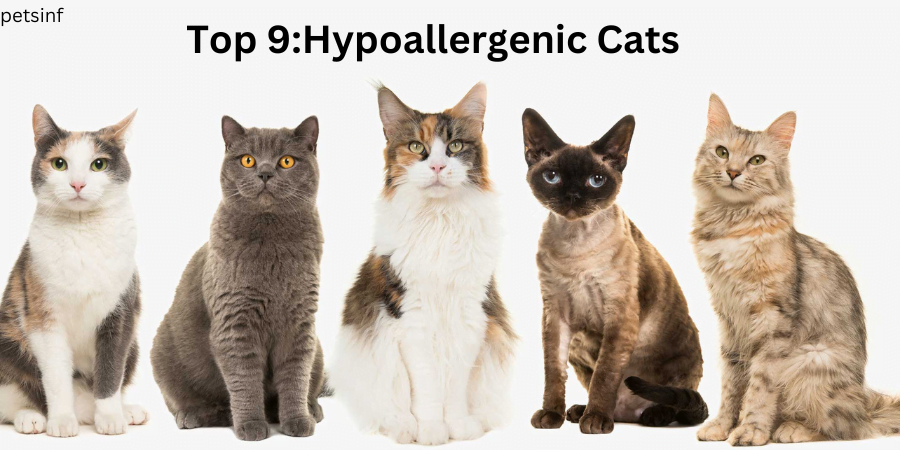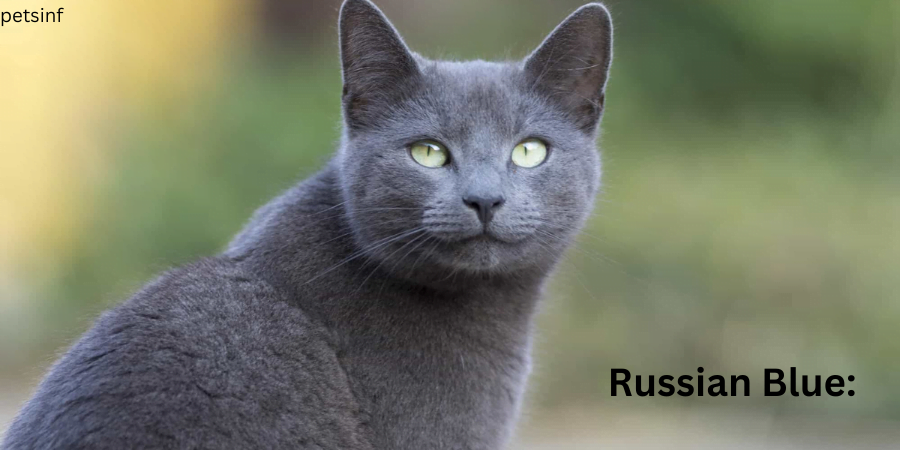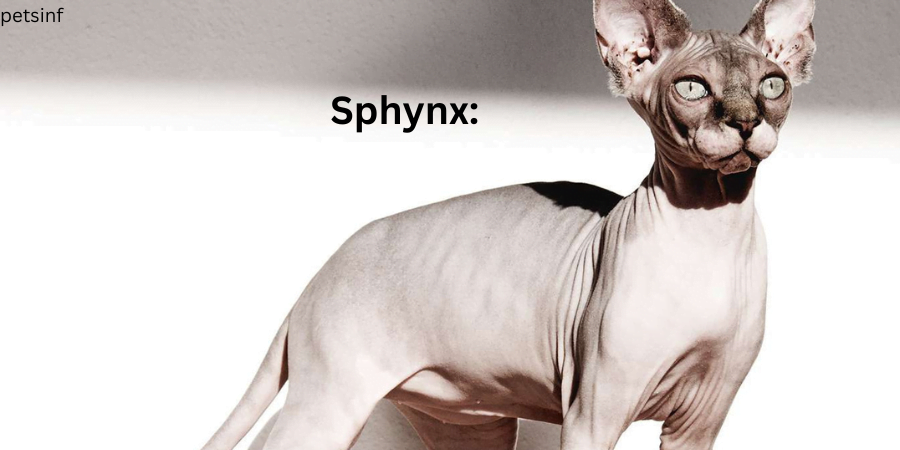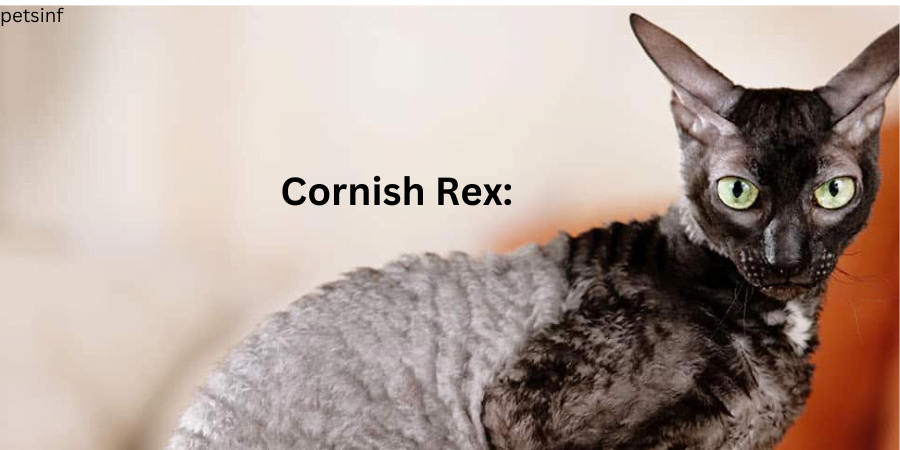
Introduction:
Living with allergies doesn’t mean giving up on the dream of having a cat. Hypoallergenic cat breeds produce fewer allergens, making them a suitable choice for individuals with sensitivities. Let’s delve into the world of these feline companions and discover the top 9 breeds that are perfect for allergic homes.
Table of Contents
The top 9 Hypoallergenic Cats are
Balinese:
Known for their luxurious, long-haired coats, Balinese cats are surprisingly hypoallergenic. Their minimal shedding and low dander production make them a favorite among allergy sufferers. These elegant cats are not just a feast for the eyes but also a breath of fresh air for those with sensitivities.
Russian Blue:

With their striking silver-blue coat, Russian Blue cats are not only beautiful but also hypoallergenic. These cats produce fewer allergens due to their short, dense fur, making them a great choice for allergic individuals seeking a loving companion.
Sphynx:

The Sphynx cat, known for its hairless appearance, is a unique and hypoallergenic breed. Without a thick coat to shed, Sphynx cats significantly reduce the spread of allergens, providing a wonderful option for those with allergies.
Devon Rex:
The Devon Rex, with its curly coat and playful nature, is another hypoallergenic gem. Their short and fine fur minimizes the amount of dander released into the environment, making them suitable for households where allergies are a concern.
Siberian:
siberian cat despite their long and luxurious fur, are surprisingly hypoallergenic. These majestic cats produce lower levels of the Fel d 1 protein, a common allergen found in cat saliva and dander. Siberians offer a perfect blend of elegance and allergy-friendly qualities
Burmese:
Burmese cats, with their sleek and shiny coat, are not only beautiful but also hypoallergenic. These affectionate felines produce fewer allergens, providing a loving and low-allergy option for cat enthusiasts.
Abyssinian:
Abyssinians, with their ticked coat and playful personality, are surprisingly hypoallergenic. Their short fur and minimal shedding contribute to a reduced allergen presence, making them a delightful choice for allergy-prone individuals.
Cornish Rex:

Cornish Rex felines gloat a particular wavy coat and are famous for being hypoallergenic. Their negligible shedding and decreased dander creation make them an astounding decision for people looking for a catlike sidekick that welcomes sensitivities.
Bengal:
Bengal felines, known for their striking spotted or marbled coat designs, are considered hypoallergenic because of their short, fine fur. While no feline is completely hypoallergenic, Bengals are a reasonable choice for those with gentle sensitivities.
Pros and Cons of Hypoallergenic Cats:
Certainly! Here’s the information organized into a table format:
Pros and Cons of Hypoallergenic Cats:
| Pros | Cons |
|---|---|
| Reduced allergen production. | No cat breed is entirely hypoallergenic. |
| Suitable for individuals with mild to moderate allergies. | Maintenance is required for some breeds with specific coat types. |
| Diverse breeds to choose from. | Allergic reactions can vary among individuals. |
| Loving and affectionate companions. |
This table provides a quick and organized overview of the advantages and disadvantages of hypoallergenic cats, making it easy for readers to grasp the key points.
FAQs:
Are hypoallergenic cats completely allergen-free?
No cat is entirely allergen-free, but hypoallergenic breeds produce fewer allergens, reducing the risk of allergic reactions.
Do hypoallergenic cats require special care?
While some hypoallergenic breeds may require specific grooming, overall care is similar to that of other cat breeds.
Can people with severe allergies keep hypoallergenic cats?
It’s essential to consult with an allergist before bringing any cat into a home with severe allergies, as individual reactions vary.
Are hypoallergenic cats less affectionate?
No, hypoallergenic cats can be just as affectionate and loving as other breeds. Their hypoallergenic qualities make them suitable for allergic individuals.
Conclusion:
Finding the right cat for allergic homes involves considering various factors, including breed, coat type, and individual sensitivities. The top 9 hypoallergenic cat breeds mentioned in this guide offer a wonderful starting point for those seeking feline companionship without typical allergic reactions.
The benefits of having a hypoallergenic cat extend beyond the reduction of allergens. These breeds are known for their affectionate nature, playful personalities, and diverse appearances, offering a wide range of options to suit various preferences. The joy of having a cat as a companion doesn’t have to be compromised by allergies, and these breeds pave the way for a harmonious coexistence.